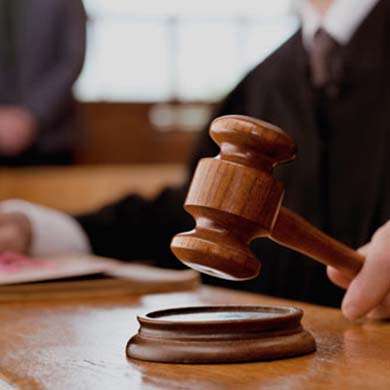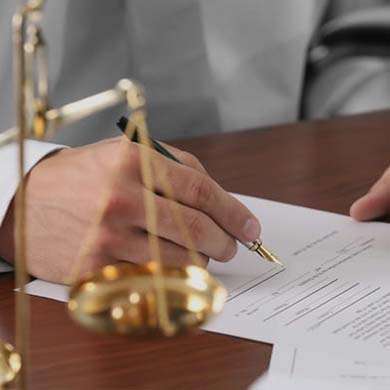Clients Reviews

4.9 / 5 based on 237 user ratings.
Clients Reviews

4.9 / 5 based on 237 user ratings.
We help you to
Does Someone Owe You Money? Recover Monies Owed!
We Research, Prepare, File Your Case in Small Claims Court Colorado.

Whether or not to file a small claims case in Colorado depends on your specific situation. Here are some factors to consider when deciding whether to file a small claims case:
Overall, if you have a dispute involving a relatively small amount of money and you believe you have a strong case, filing a small claims case in Colorado may be a good option for you.
To file a small claims case in Colorado, you will need to complete and file certain forms with the court. Here are the main forms that you may need:
It is important to note that the forms required for a small claims case may vary depending on the county in which you are filing. You should contact the court clerk's office or consult the Colorado Judicial Branch website for specific information about the forms required in your county.


In Colorado, the Statement of Small Claims is a document that the defendant files in response to the plaintiff's Complaint in a small claims case. The Statement of Small Claims is a response to the plaintiff's Complaint and may contain important information about the defendant's position in the case. The court will schedule a hearing for the small claims case, and both the plaintiff and the defendant must attend. If you have filed a Statement of Small Claims, attend the hearing and bring a copy of the document with you. At the hearing, both the plaintiff and the defendant can present their case to the judge. In some cases, the parties may be able to negotiate a settlement before or during the hearing. After hearing both sides of the case, the judge will make a decision and issue a judgment. If the review is in your favor, you may need to take additional steps to collect the money owed to you.
In Colorado, small claims court is designed to provide an efficient and accessible way for individuals and businesses to resolve disputes involving relatively small amounts of money. Here is a general overview of who can use small claims court in Colorado:
It is important to note that there are some types of cases that cannot be heard in small claims court, such as cases involving divorce, child custody, or personal injury claims.
In Colorado, the plaintiff is the person or entity that initiates a legal action by filing a Complaint in court. The plaintiff is the party who is seeking some sort of relief or remedy, such as the payment of a debt, damages for an injury or property damage, or the return of property. The defendant is the person or entity that is being sued by the plaintiff. The defendant is the party who is being asked to respond to the allegations made in the Complaint and may be required to pay damages or provide some other type of relief if the plaintiff's claims are successful. In a small claims case in Colorado, the plaintiff is typically an individual or business that is seeking payment for a debt or damages, while the defendant is the person or business that owes the debt or is alleged to have caused the damages. Both the plaintiff and defendant have certain rights and responsibilities in a legal action. For example, the plaintiff has the burden of proving their case, while the defendant has the right to present a defense and challenge the plaintiff's evidence. Both parties also have the right to be represented by an attorney, although this is not required in small claims court.
If you are preparing for a trial in Colorado, here are some general steps you can take to help ensure that you are adequately prepared:
By taking these steps, you can help ensure that you are adequately prepared for your trial in Colorado.
Gathering the necessary documents is an important part of preparing for legal action in Colorado. Identify the documents you need: Make a list of all of the documents that may be relevant to your case. Gather all of the documents on your list. This may involve requesting copies from other parties, such as the opposing party or a third-party witness. You may also need to retrieve documents from your own files or computer. Once you have collected all of the relevant documents, organize them in a logical and easy-to-understand manner. Carefully review each document to ensure that it is complete and accurate. Make copies of all of the documents you plan to submit to the court or use as evidence at trial. Store the original documents in a safe and secure location, such as a filing cabinet or safe. It is also important to remember that the specific documents you need may vary depending on the type of case you are involved in, so it is a good idea to consult with an attorney or other legal professional for guidance.
Mauris quis consectetur eros, eu dapibus nulla. Quisque imperdiet mattis pellentesque. Suspendisse tempor eros neque, non placerat neque iaculis sed. Mauris et ipsum eget quam sollicitudin tristique.
Mauris quis consectetur eros, eu dapibus nulla. Quisque imperdiet mattis pellentesque. Suspendisse tempor eros neque, non placerat neque iaculis sed. Mauris et ipsum eget quam sollicitudin tristique.
Mauris quis consectetur eros, eu dapibus nulla. Quisque imperdiet mattis pellentesque. Suspendisse tempor eros neque, non placerat neque iaculis sed. Mauris et ipsum eget quam sollicitudin tristique.
Mauris quis consectetur eros, eu dapibus nulla. Quisque imperdiet mattis pellentesque. Suspendisse tempor eros neque, non placerat neque iaculis sed. Mauris et ipsum eget quam sollicitudin tristique.
Thanks Small Claim Filing. I extremely suggest Small Claims Filing affordable paper preparation solutions for any person who desires quick efficient as well as economical solutions. They do the job and assisted me with my separation as well as my little girl custodianship. Now my divorce is done in 4 months and also I have my child full protection, by the help of God as well as Small Claim Filing.
Small Claim Filing was advised to me by a buddy. I rejoice I took my friend's guidance. I maintained Small Claim Filing and they right away took control of the case. He and his staff maintained me updated, calm, as well as less-stressed offered the situations of the scenario. I trusted Small Claim Filing would steer me in the appropriate direction, as well as I was not wrong. I am much happier with how the case turned out and would suggest them to any person seeking Court.